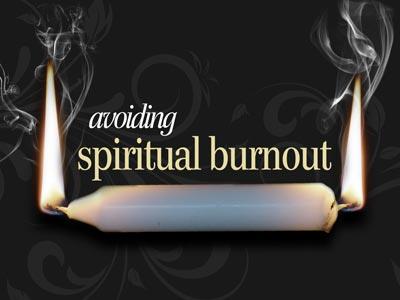-
"When Your World Falls Apart - A Psalmist Strategy For Mastering Crisis"
Contributed by Joey Nelson on May 4, 2006 (message contributor)
Summary: This Lament (Complaint) Psalm is for all those who are discouraged, seemingly surrounded by problems, or feeling defeated.
Psalm 3 "When Your World Falls Apart - A Psalmist Strategy for Mastering Crisis"
A. Proposition: This Lament (Complaint) Psalm is for all those who are discouraged, seemingly surrounded by problems, or feeling defeated.
B. Exposition:
Historical Setting - A psalm of David, written when he fled from his son Absalom. According to Jewish tradition, David offered this prayer when he was forced to flee from Jerusalem during his son Absalom’s attempted coup (see 2 Sam. 13-18). Imagine how discouraged you would be if your own child was trying to take your life. His son is seeking to take his crown and has driven him from Jerusalem. Trouble started for David when he did adultery with Bathsheba, and instead of protecting and looking out for the interests of Uriah the Hittite, he chose to take Uriah’s life to cover up his own sin. Of course, from that point onward everything began to go wrong for David. Do you remember the sordid incident in which Amnon raped his half-sister Tamar, and then Absalom slew Amnon? When David learned about it, instead of acting righteously and summarily toward his own son, he allowed Absalom to leave Jerusalem. Why? David had just committed the same crime. His own conscience was screaming at him, and he lost all moral authority to deal with Absalom. So Absalom was allowed to leave, but in time he came back and sat at the gates of the city. As people passed by on their way to the king, Absalom would say, "If only I were appointed judge in the land! Then everyone who has a complaint or case could come to me and I would see that he gets justice," implying that they would not get justice from David (1 Sam. 15:4). In time, Absalom was able to mount a rebellion against David, and civil war ensued.
Background - Imagine David’s world for a moment. No electricity and no malls, no books and magazines, no microwave ovens, and no central heating. Very few doctors. No faucets to turn and no valves to flush. War and atrocities associated with war were a constant threat. Now, on top of all of this, you’ve got a son that wants to kill you! Even though he was King, life was still very hard and discouraging at times.
Structure - Note the parts of a Lament Psalm.
Invocation / Address - A Crying out to God
3:1a LORD,
Comment: Note that this address is not lengthy or fancy. There’s no need to butter-up God. Sometimes, it’s all we can say. Cry out to God! Blurt out your request.
Complaint - A Definition of the Crisis
3:1b how numerous are my enemies!
Many attack me.
Comment: In his discouraged state, he saw many enemies. Perspective was lost. Many attack or trouble me.
Sar means a loss of breath, a loss of control. Have you ever been overwhelmed with the "so manys" of life? David’s world became very narrow. Escape was going to be a challenge. The enemy is winning. The game is about over. God doesn’t seem to care.
3:2 Many say about me,
“God will not deliver him.” (Selah)
Comment: Perhaps they were thinking of the King’s adultery with Bathsheba and murder of Uriah. That event started a series of problems during David’s reign, so that in the eyes of many, it seemed that God had or would desert David. Popular opinion had turned on him.
Selah. You’ll notice this word frequently in the Psalms. Its exact meaning is uncertain, but many feel that it could indicate a pause, a crescendo, or a musical interlude of some sort. "Pause and think on these things." He’s hurting. Feel the pain and abandonment. Let this filter into your consciousness.
Define your crisis and complain to God!
Trust / Statement of Confidence -
3:3 But you, LORD, are a shield that protects me,
you grant me honor (glory) and give me renewed strength.
Comment: Note the figure of speech (metaphor) David uses to express his trust. The Lord is a "shield." Why did David use this image here? The shield was an ancient warrior’s primary defensive weapon. Using military imagery, he is making a connection between the protective properties of a shield in battle with God’s protective care in life.
The phrase "renewed strength" comes from a Hebrew word meaning “lifts my head.” The weary psalmist’s “head is down,” but he is confident the Lord “will lift his head” by giving him renewed physical strength and emotional vigor. See Ps. 110:7.
3:4 To the LORD I cried out,
and he answered me from his holy hill. (Selah)
Comment: Holy Hill is Jerusalem. Although God is everywhere, in the Hebrew mind, he was specially present for intimate dialogue only in certain places. Jerusalem was that place. This speaks of some past prayer experience of the Psalmist.

 Sermon Central
Sermon Central



